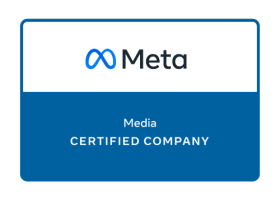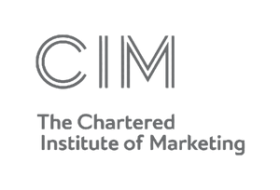A Search Engine Results Page (SERP) is the page that a search engine displays to a user after they enter a search query. SERPs contain different types of listings, including organic search results, paid search results, and SERP features. Organic search results are unpaid listings that are ranked based on search engine algorithms and ranking signals. Paid search results are the sponsored listings that are paid for by advertisers. SERP features include things like featured snippets, People Also Ask boxes and related searches. SERPs can vary depending on the keyword and can have a significant impact on SEO traffic. Marketers use SEO techniques to optimise their web pages to rank higher on SERPs, and they can also utilise SERP features to their advantage. Overall, understanding SERPs and their components is essential for effective digital marketing.
Key Takeaways:
- The Search Engine Results Page (SERP) is the page displayed by search engines to users after they enter a search query.
- SERPs include organic search results, paid search results, and SERP features.
- Organic search results are unpaid listings ranked based on search engine algorithms.
- Paid search results are sponsored listings that advertisers pay for.
- SERP features include featured snippets, People Also Ask boxes and related searches.
- SERPs can have a significant impact on SEO traffic and digital marketing strategies.
Understanding the Search Engine Results Page (SERP)
Let’s explore the different elements that make up a Search Engine Results Page (SERP), such as organic results, paid results, and the dynamics involved in search engine ranking. SERPs are the pages that search engines like Google display to users in response to their search queries.
Organic results are the unpaid listings that are ranked based on search engine algorithms and ranking signals. These results are considered to be more credible and trustworthy by users. On the other hand, paid results are sponsored listings that advertisers pay for. They are displayed prominently on the SERP and labelled as ads.
Search engine ranking is the position at which a webpage appears on the SERP. The ranking is determined by various factors including relevance, quality of content, authority of the website, and user experience. Websites that have higher rankings tend to receive more organic traffic.
| Organic Results | Paid Results |
|---|---|
| Unpaid listings | Sponsored listings |
| Ranked based on algorithms and signals | Advertised and paid for by advertisers |
| Considered more credible and trustworthy | Displayed prominently and labeled as ads |
Understanding the dynamics of SERPs is crucial for marketers. By optimising their web pages for improved search engine ranking, they can increase their visibility in organic results and drive more traffic to their websites. Additionally, marketers can leverage SERP features like featured snippets, People Also Ask boxes, and related searches to enhance their marketing strategies and attract more users.
The Impact of SERP Features on SEO Traffic
Discover the impact of SERP features on your website’s organic traffic and the role they play in optimising your search engine visibility. SERP features are elements displayed on the search engine results page that provide additional information or functionality to users. These features can include featured snippets, People Also Ask boxes and related searches. Understanding how these features affect your SEO traffic is crucial for maximising your online visibility and driving organic traffic to your website.
SERP features have the potential to significantly impact your website’s organic traffic. Featured snippets, for example, are concise summaries of information that appear at the top of search results. If your content is featured in a snippet, it can capture users’ attention, leading to higher click-through rates and increased organic traffic. Similarly, the People Also Ask boxes can generate additional visibility for your website by providing answers to related questions and encouraging users to explore more of your content.
Incorporating SERP features into your search engine optimisation strategy can also enhance your search engine visibility. By optimising your content to appear in featured snippets or targeting related searches, you can increase your chances of appearing in prominent positions on the SERP. This can result in higher organic traffic and improved brand visibility. Additionally, SERP features can help establish your website as a reliable source of information, further boosting your search engine authority.
| SERP Features | Impact on SEO Traffic |
|---|---|
| Featured Snippets | Increased click-through rates and organic traffic |
| People Also Ask for boxes | Enhanced visibility and opportunities to showcase expertise |
| Related Searches | Increased chances of appearing in prominent positions |
In conclusion, SERP features have a significant impact on your website’s organic traffic and search engine optimisation efforts. By understanding how these features work and leveraging them to your advantage, you can optimise your search engine visibility and attract more organic traffic to your website. Incorporate strategies to target featured snippets, answer users’ questions in the People Also Ask sections, and optimise your content for related searches. By doing so, you can maximise the benefits of SERP features and drive success in your digital marketing efforts.
Leveraging SERPs for Marketing Success
Learn how to harness the power of SERPs for marketing success by implementing effective search engine optimisation techniques and leveraging SERP features. In today’s digital landscape, understanding and utilising SERPs can make a significant difference in your marketing strategy. By optimising your web pages for higher SERP rankings and leveraging SERP features, you can improve your online visibility and attract more targeted traffic to your website.
Search engine optimisation (SEO) plays a crucial role in improving keyword rankings on SERPs. Conduct thorough keyword research to identify the most relevant and high-volume search terms in your industry. Incorporate these keywords strategically throughout your web page’s content, including in titles, headings, and meta descriptions. By optimising your content, you increase the likelihood of ranking higher on SERPs for those keywords, making it easier for potential customers to find you.
SERP features, such as featured snippets, People Also Ask boxes, and related searches, are valuable tools for gaining visibility on SERPs and driving organic traffic. By optimising your content to appear in these features, you can increase your chances of capturing users’ attention and driving click-through rates to your website. For instance, creating comprehensive and well-structured content can increase the likelihood of appearing in featured snippets, while optimising your website for mobile can enhance your chances of being recommended in related searches.
Optimising webpages for SERPs
- Conduct thorough keyword research
- Incorporate keywords strategically in titles, headings, and meta descriptions
- Create comprehensive and well-structured content
- Optimise your website for mobile
By leveraging SERP features, you can also increase your overall search engine visibility. When users see your webpage featured prominently in a SERP feature, they are more likely to view you as a trusted and authoritative source. This can lead to increased brand recognition and credibility, ultimately driving more traffic and conversions.
In conclusion, understanding SERPs and how to optimise your webpages for higher rankings and leverage SERP features is vital for marketing success in the digital age. By implementing effective SEO techniques and utilising SERP features strategically, you can improve your online visibility, attract targeted traffic, and stay ahead of your competition. So, start optimising your webpages today to unlock the full potential of SERPs and propel your marketing efforts to new heights.
| Benefit | Actions |
|---|---|
| Improved keyword rankings on SERPs | Conduct thorough keyword research and strategically incorporate keywords in webpage content |
| Increased search engine visibility | Leverage SERP features by optimising content for featured snippets, People Also Ask boxes and related searches |
| Enhanced brand recognition and credibility | Showcasing your webpage in SERP features increases trust and establishes authority in your industry |
| More targeted traffic and conversions | Attract qualified users to your website by appearing prominently on SERPs |
The Significance of SERPs in Digital Marketing
Explore the significance of SERPs in digital marketing and understand how they impact search engine visibility, organic results, and paid results. A Search Engine Results Page (SERP) is the page that a search engine displays to users after they enter a search query. It plays a critical role in digital marketing as it determines the visibility and positioning of websites and content.
On a SERP, there are organic search results, which are unpaid listings that appear based on search engine algorithms and ranking signals. These organic results are essential for businesses aiming to attract organic traffic and improve their online presence. Additionally, there are paid search results, which are sponsored listings that advertisers pay for. These paid results can provide immediate visibility and drive targeted traffic to websites.
Furthermore, SERPs also feature various elements known as SERP features, such as featured snippets, People Also Ask boxes and related searches. These features can significantly impact click-through rates and user engagement by providing users with more information directly on the search results page. Marketers can leverage these SERP features to enhance their digital marketing strategies and increase their chances of attracting potential customers.
Table: Types of Listings on a SERP
| Type of Listing | Description |
|---|---|
| Organic Search Results | Unpaid listings are ranked based on search engine algorithms and ranking signals. |
| Paid Search Results | Sponsored listings that advertisers pay for to gain immediate visibility. |
| SERP Features | Additional elements on the SERP, such as featured snippets and People Also Ask boxes, provide users with more information. |
For businesses to succeed in digital marketing, it is crucial to understand how SERPs function and how they can be leveraged to improve search engine visibility, increase organic results, and drive paid results. By optimising websites and content using search engine optimisation (SEO) techniques, businesses can enhance their chances of ranking higher on SERPs and attracting organic traffic. Additionally, utilising SERP features effectively can help businesses stand out from competitors and capture the attention of users, leading to higher click-through rates and improved overall visibility.
Optimising Webpages for SERPs
Discover effective strategies for optimising your web pages to improve their ranking on SERPs through search engine optimisation techniques. When it comes to enhancing your webpage’s visibility and positioning on search engine results pages (SERPs), implementing specific SEO practices is crucial. By understanding SERP ranking factors and implementing the right optimisation strategies, you can increase your chances of achieving higher rankings and attracting more organic traffic.
An essential aspect of optimising webpages for SERPs is conducting thorough keyword research. Identify relevant keywords and phrases that your target audience is searching for and incorporate them strategically throughout your webpage. By using these keywords strategically in your page title, headings, meta tags, and content, you can signal to search engines what your webpage is about and improve its chances of ranking higher.
On-page optimisation techniques play a significant role in improving SERP rankings as well. Ensure that your webpage is technically optimised by optimising loading speed, using clean code, and implementing proper URL structure. Additionally, create compelling and relevant content that is valuable to your target audience. Incorporate your target keywords naturally into the content, while prioritising user experience and readability.
| Optimisation Strategies for SERPs | Description |
|---|---|
| 1. Conduct thorough keyword research | Identify relevant keywords and phrases that your target audience is searching for and incorporate them strategically throughout your webpage. |
| 2. Implement on-page optimisation techniques | Optimise loading speed, use clean code, implement proper URL structure, and create compelling, relevant content that incorporates target keywords naturally. |
| 3. Build high-quality backlinks | Acquire relevant and authoritative backlinks from reputable websites, as they play a crucial role in search engine rankings. |
| 4. Optimise for mobile devices | Ensure your webpage is mobile-friendly and responsive, as mobile optimisation is essential for both user experience and search engine rankings. |
Building high-quality backlinks is another critical aspect of optimising web pages for SERPs. Acquiring relevant and authoritative backlinks from reputable websites signals to search engines that your webpage is trustworthy and valuable. Implement link-building strategies such as guest posting, creating valuable content that others want to link to, and reaching out to industry influencers to build strong backlinks to your webpage.
Remember, the goal of optimising webpages for SERPs is to provide valuable and relevant content to your target audience while ensuring that search engines understand the purpose and relevance of your webpage. By implementing effective search engine optimisation techniques and staying updated with the latest SEO practices, you can improve your webpage’s ranking on SERPs and drive more organic traffic to your website.
Utilising SERP Features to Your Advantage
Harness the potential of SERP features and learn how to use them to your advantage for increased click-through rates and effective digital marketing strategies. SERP features are the additional elements that appear on a search engine results page alongside the traditional organic and paid search results. These features, such as featured snippets, People Also Ask boxes, and related searches, can significantly impact your website’s visibility and click-through rates.
One way to optimise your content for featured snippets is by providing concise and informative answers to commonly searched questions. By structuring your content in a question-and-answer format, you increase the likelihood of your content being selected as a featured snippet, which can attract more clicks and establish your website as a credible source of information.
Additionally, leveraging People Also Ask boxes can help you expand your reach and drive more traffic to your website. By optimising your content to address the questions displayed in the People Also Ask section, you increase the chances of your website being featured, which can lead to increased visibility and click-through rates.
Table: Key SERP Features
| SERP Feature | Description |
|---|---|
| Featured Snippets | Concise answers to commonly searched questions that appear at the top of the search results. |
| People Also Ask | A section that displays related questions and answers, expanding the users’ search experience. |
| Related Searches | Suggestions for additional search queries related to the user’s initial search query. |
Lastly, taking advantage of related searches can help you understand your target audience better and identify new opportunities for content creation. By analysing the related searches displayed on the SERP, you can discover popular topics and keywords that can guide your content strategy and attract more organic traffic.
Overall, SERP features offer valuable opportunities for digital marketers to improve their website’s visibility and click-through rates. By optimising your content for featured snippets, leveraging People Also Ask boxes, and analysing related searches, you can enhance your digital marketing strategies and achieve greater success in the competitive online landscape.
Conclusion
In conclusion, understanding the intricacies of the Search Engine Results Page (SERP) is crucial for effective digital marketing, allowing you to optimise your strategies, improve search engine visibility, and achieve marketing success.
A Search Engine Results Page (SERP) is the page that a search engine displays to a user after they enter a search query. It contains various types of listings, including organic search results, paid search results, and SERP features. Organic search results are unpaid listings that are ranked based on search engine algorithms and ranking signals, while paid search results are sponsored listings that advertisers pay for.
Additionally, SERP features such as featured snippets, People Also Ask boxes, and related searches can significantly impact SEO traffic and click-through rates. Marketers can leverage these features to their advantage by optimising their content for featured snippets, utilising People Also Ask boxes, and targeting related searches.
To achieve better visibility on SERPs, marketers employ search engine optimisation (SEO) techniques to optimise their web pages. This involves conducting keyword research, implementing on-page optimisation strategies, and creating relevant and valuable content. By improving their web page’s ranking on SERPs, marketers can increase their organic traffic and attract more potential customers.
Overall, understanding SERPs and their components is essential for digital marketing success. By staying updated on the latest SERP trends and utilising SEO techniques and SERP features, marketers can effectively reach their target audience, enhance their online visibility, and drive more traffic to their websites.
FAQ
Q: What is a Search Engine Results Page (SERP)?
A: A Search Engine Results Page (SERP) is the page that a search engine displays to a user after they enter a search query.
Q: What are the components of a SERP?
A: SERPs contain different types of listings, including organic search results, paid search results, and SERP features.
Q: What are organic search results?
A: Organic search results are unpaid listings that are ranked based on search engine algorithms and ranking signals.
Q: What are paid search results?
A: Paid search results are the sponsored listings that are paid for by advertisers.
Q: What are some examples of SERP features?
A: SERP features include things like featured snippets, People Also Ask boxes, and related searches.
Q: How do SERPs impact SEO traffic?
A: SERPs can vary depending on the keyword and can have a significant impact on SEO traffic.
Q: How can marketers optimise their webpages for SERPs?
A: Marketers use SEO techniques to optimise their webpages to rank higher on SERPs.
Q: Can SERP features be utilised in marketing strategies?
A: Yes, marketers can also utilise SERP features to their advantage to enhance their marketing strategies.
Q: Why is understanding SERPs important for effective digital marketing?
A: Understanding SERPs and their components is essential for effective digital marketing.



